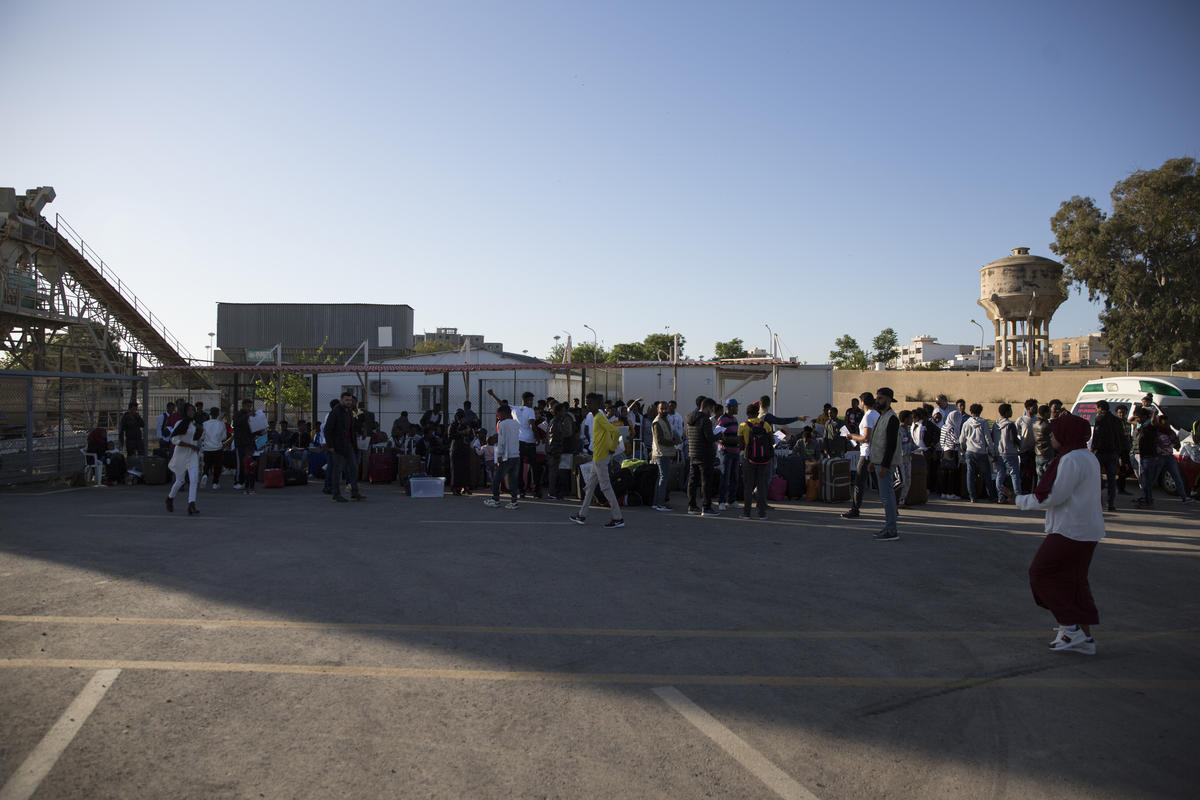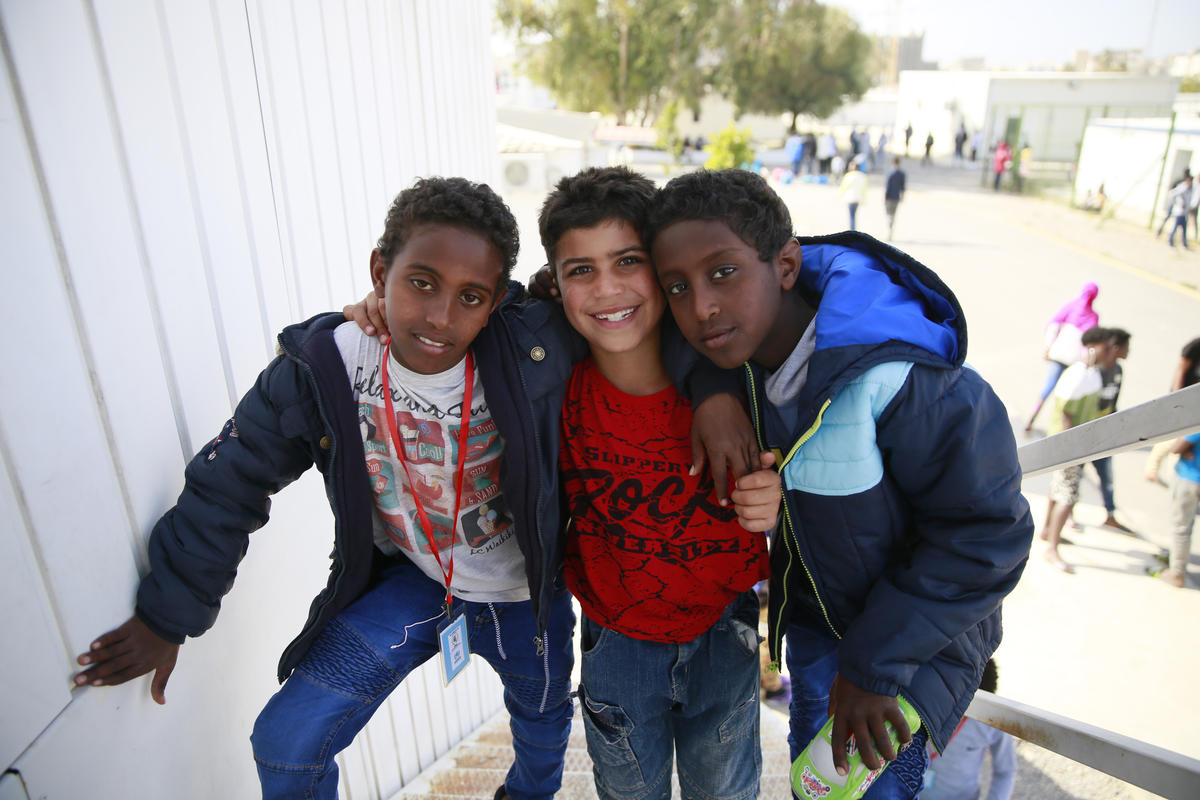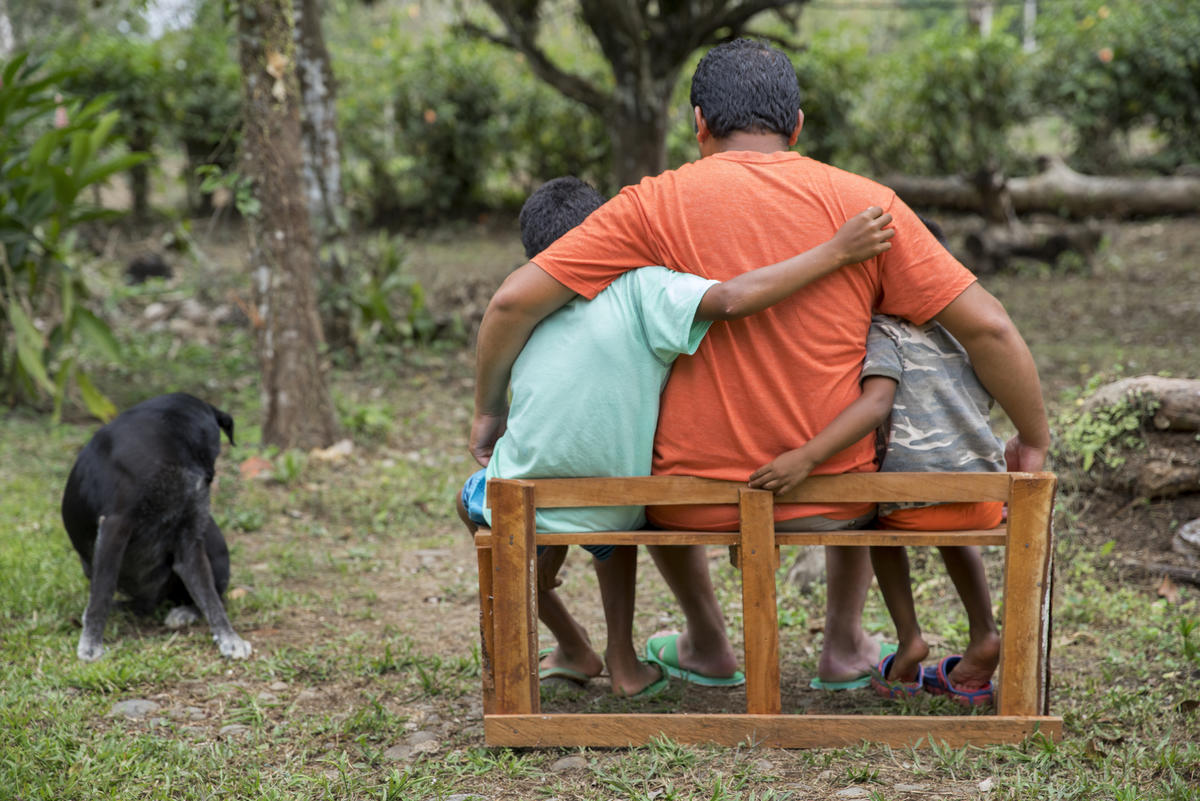WEM participants undergo longer simulation exercise during training
WEM participants undergo longer simulation exercise during training

SCHWÄBISCHE ALB, Germany, September 25 (UNHCR) UNHCR has extended the simulation section of its training for emergency response teams, placing participants under more pressure but also providing a greater sense of the reality they will face when deployed.
"We have recently increased the simulation period to two-and-a-half days from one day," said UNHCR emergency team trainer Andrei Kazakov, referring to the Workshop for Emergency Management, or WEM. "It's tougher on the participants because there's no let up in the pressure as they move from one difficult situation to another and they have to get more involved and learn to perform as a team."
The sense of reality for WEMers, as course participants are known, was increased as the latest simulation exercise was held on an army shooting range in southern Germany's Schwäbische Alb region. With tank and mortars firing rounds nearby, there could be no mistakes in map reading.
WEMers had to confront aggressive military forces determined to turn away refugees; plan and manage a camp; provide first aid; survive serious security incidents and learn to deal with the media. Negotiation skills, radio communication procedures, four-wheel driving on rough terrain and using the global positioning system are an integral part of the training.
There are three WEMs a year - held in Sweden, Norway and Germany - training around 40 participants each time over nine days. The course in Germany is funded by the government and foreign affairs ministry and is run in close cooperation with the German Federal Agency for Technical Relief - the Bundesanstalt Technisches Hilfswerk (THW).
It is a major logistical exercise involving some 50 federal police, the German army, the German Red Cross and THW volunteers, who give their time, expertise and considerable resources to make the training a major success.
While the simulation is tough going for WEMers who camped in tents beside the shooting range, it is the highlight of the course for most people - where they put into practice what they have learned in the first part of the course at the THW training centre in Neuhausen near Stuttgart.
"It gives the impression of a real situation. It alerts us and gives us mental preparedness. A lot of judgement is needed," said Geneva-based Fatima Sherif-Nor, who was previously posted in eastern Sudan. "In a normal situation a team evolves over time, but in a very short time on the WEM you are expected to act in a team and that's hard," she added.
Learning to work together competently in a difficult environment is one of the main aims of the training. After completing the WEM, participants are put on UNHCR's emergency roster for nine months, during which they must be prepared to deploy to any emergency within 72 hours for up to three months.
The most talked about elements of any WEM simulation are the security incidents, where participants find themselves in situations of life-threatening danger and have to know how to react.
"People who are aware of their patterns of dealing with crisis and understand the impact of their style or approach on others are less likely to behave in ways that create or escalate crises, than are those who are unaware," said UNHCR's security trainer, Kjell Lauvik. "As individuals become aware of the way they tend to react in the stress of conflict, they can make choices to modify their behaviour in ways that help deal with crises and conflict more constructively," he added.
Learning how to understand and manage yourself, and mentally cope with the stresses of an emergency deployment - including security incidents - is an important part of the training.
"The WEM helps because it familiarises people with different aspects and possibilities, so they can mentally prepare for whatever might happen," said Duda Suzic-Kofi from UNHCR staff welfare.
While tough, the WEM is highly sought after by UNHCR staff keen to be trained to be part of the organisation's emergency response team. It is also important in building closer cooperation with the THW.
"With the cooperation that UNHCR and THW have in the field, we've found that training together is a real way of understanding each others needs and breaking the ice. This makes us all much more effective working partners in the field during an emergency where it really counts," said THW's international training expert Jörg Eger, who is closely involved with organising the WEM.
"The WEM has a fantastic spirit. For everyone involved, the volunteers, the permanent staff, they really enjoy supporting these workshops," Eger added.
That sentiment is shared by UNHCR course facilitator and resource staff at the WEM as they pass on their knowledge to emergency team deployees who may end up trying to help refugees and displaced people in some of the world's most difficult and dangerous situations.
By Jennifer Pagonis in Schwäbische Alb, Germany








